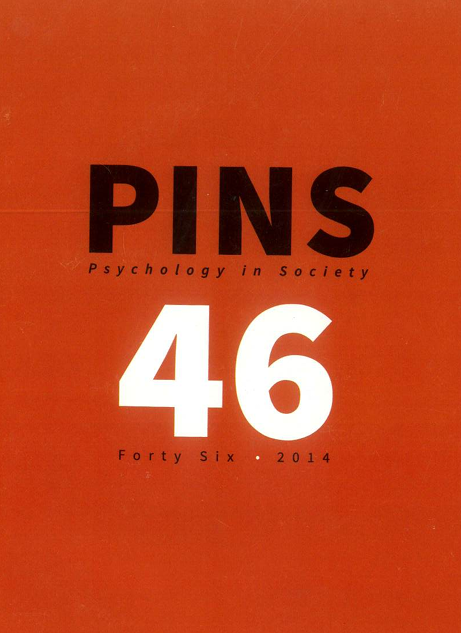In the present looking back and imagining a future that could be
DOI:
https://doi.org/10.17159/2309-8708/2014/n46a16Abstract
Stevens, Garth, Duncan, Norman & Hook, Derek (eds) (2013) Race, memory and the Apartheid Archive: Towards a transformative psychosocial praxis.
Houndmills: Palgrave Macmillan. ISBN 978-1-137-26389-6 hbk. Pages xviii + 368.
Johannesburg: Wits University Press. ISBN 978-1-86814-756-4 pbk. 320 Pages.
“Traumatic experiences from the past will constantly attempt to re-inscribe themselves (often in masked form) in the present, if they are not acknowledged, interrogated, and addressed.” (Apartheid Archive Project, 2010)
They are considering giving him parole after only 20 years ... He has not even served a fraction of his sentence. Could they not wait for us to die first? Why are they opening the wounds? Is he celebrating 20 years of democracy too and being given freedom as a gift? What about our pain, our loss? (Paraphrased response from a family member of one of Eugene De Kock’s victims interviewed on eNCA News channel, 30 May 2014).
Narrated in a blend of frustration and outrage, helplessness and betrayal, this plea delivers an unfinished story, wounds that continue to fester, perhaps re-opened with his release, and healing that is never quite complete. The Apartheid Archive, a virtual attic of such stories, reminds us that as a nation, and a world, tomorrow is never possible without revisiting yesterday; that healing is a national obligation, never resolved in a single act of reconciliation. With their plea, the family has brought to the public their hidden transcript of pain. I see this as a befitting opening to my reflection on the book that engages with the project of memory and the complexities of race within a country like South Africa. This book is a treasure and a burden, insisting that we remember and re-view, re-engage and reflect on the cost of ignorance, breaking the silence, and being in conversation with how our past influences the present. This volume insists that we integrate memory, pain and the unspoken into our vision for social justice.
Downloads
Downloads
Published
How to Cite
Issue
Section
License
This journal is an open access journal, and the authors' and journal should be properly acknowledged, when works are cited.
Authors may use the publishers version for teaching purposes, in books, theses, dissertations, conferences and conference papers.
A copy of the authors’ publishers version may also be hosted on the following websites:
- Non-commercial personal homepage or blog.
- Institutional webpage.
- Authors Institutional Repository.
The following notice should accompany such a posting on the website: “This is an electronic version of an article published in PINS, Volume XXX, number XXX, pages XXX–XXX”, DOI. Authors should also supply a hyperlink to the original paper or indicate where the original paper (http://www.journals.ac.za/index.php/pins) may be found.
Authors publishers version, affiliated with the Stellenbosch University will be automatically deposited in the University’s’ Institutional Repository SUNScholar.
Articles as a whole, may not be re-published with another journal.
The copyright of the article(s) lies with the author(s).
The copyright of the journal lies with PINS-psychology in Society.
The following license applies:
Attribution CC BY-NC-ND 4.0 - https://creativecommons.org/licenses/by-nc-nd/4.0/

